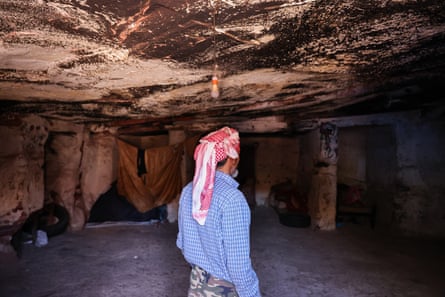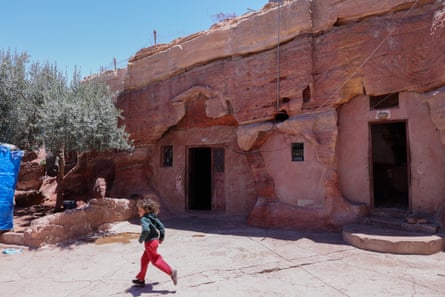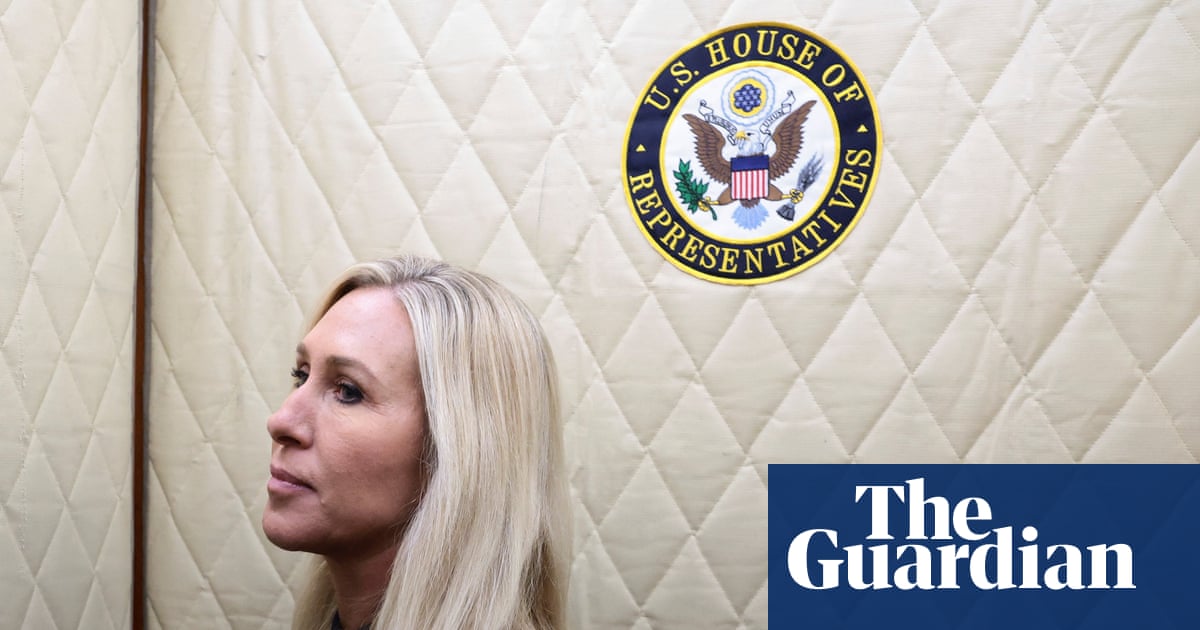By noon, the sun is high over Petra, bleaching the coloured sandstone cliffs and temporarily emptying its celebrated ruins of tourists. Vines and a canopy keep the terrace of Mohammed Feras s cave home cool despite the searing summer heat rising from the rocky valley.
“I have lived here all my life. I’ve never been anywhere else and I cannot imagine not living here. This area is part of who I am and I cannot leave it,” the 44-year-old farmer and sometime tourist guide said.
Within months, Feras and dozens of other Bedouin from the Bdoul community are likely to have left the caves they call home. There is little place for them in Petra as it is transformed by a major development programme that aims to build new facilities, regulate an anarchic tourist trade and provide a better experience for the hundreds of thousands of visitors drawn to the ancient site.
Feras’s home, which he shares with his wife and nine children, comprises four connected 2,400-year-old caves and an adjoining tent. Just a 10-minute walk away are the remains of Petra’s grand temple and its colonnaded main street. It is also just a short hike from the monument known as the Treasury, made more famous by the 1989 blockbuster Indiana Jones and the Last Crusade.
The caves occupied by the Bdoul were originally an integral part of a wealthy trading city – the thriving capital of the Nabateans for 500 years before it was annexed by the Romans in around AD100 and eventually abandoned three centuries later.

International human rights campaigners have called on Jordanian authorities to halt looming evictions. “Jordan’s displacement of the Bdoul from their historic homes in Petra puts their culture at risk,” said Adam Coogle, a Middle East and north Africa deputy director at Human Rights Watch. “The Jordanian government should halt the relocations and respect the rights of Petra’s Bedouin community.”
Officials charged with the management and development of Petra say the Bdoul who still live on the site are there illegally. They contend that many have alternative accommodation and that their use of the caves as homes, animal shelters, shops and storerooms risks causing irreparable harm.
“If we want to preserve the integrity of the site for future generations then we have to stop the use of the caves for damaging activities,” said Dr Fares Braizat, the chief commissioner of the Petra Development and Tourism Region Authority. “Everyone in the site, whoever they are, has to abide by the law, and it is illegal for anyone to live in or use the archaeological monuments within the [site of Petra] for whatever purposes.”
Historians say the Bdoul have lived in Petra’s caves for about 200 years. Efforts to remove the community from the site began shortly after its classification by the United Nations as a world heritage site in 1985. Then, in a deal negotiated with community leaders, thousands of people were moved to a purpose-built village nearby. Some evaded the relocation or have since moved back to their cave homes.
In recent years, with tourism a major contributor to Jordan’s flagging economy, big investments have been made at Petra. There is a new museum, cultural village and network of walking trails. Hundreds of stalls that choked the site have been cleared away, as have guides who harassed visitors. An effort has been made to cut down on overnight stays in caves being offered to tourists on social media or popular booking sites.

The new campaign to clear the caves began in late 2024 and targeted a dozen or so extended families now living around the Sutuh al-Nabi Harun mountain. The Jordanian authorities have been accused by campaigners of using “coercive tactics”.
Feras, who earns a thin living from farming goats and sheep and occasionally acting as an guide, has rejected an offer from authorities of a house in the village where other Bdoul from Petra are now living. He said he was sent to prison earlier this year for failing to pay a heavy fine for destroying a heritage site. He was released after two weeks but now faces a new court hearing.
“It’s ridiculous to accuse us of damaging the caves,” Feras said. “We are their guardians. We are not destroying anything. We just live the way we have lived for hundreds of years.”
Yasin Ahmed , one of Feras’s neighbours, said he had also received a court summons, as well as fines totalling tens of thousands of dollars, which he too could not pay.
“I just don’t have that kind of money. I am not wealthy,” he said. “I grew up here and I don’t know anything else. I can’t survive in a house in a village … They are offering only a very small house but I have 10 children.”
The tourist trade in Jordan has been badly hit by the war in Gaza, with the number of visitors to Petra falling dramatically. The Bdoul who made a living from guiding tourists or selling souvenirs or soft drinks have lost much of their income.
Rayya Hussein, 85, has sworn never to leave her cave home, where she has lived all her life. Her parents are buried in the mountains close by. “If they want to force me to move out, I will go up on the mountain and jump,” she said.

Dr Olivia Mason, a political geographer at Newcastle University who has researched Petra and its development, said authorities saw the Bdoul as a nuisance, despite the UN making clear that their cultural heritage was an integral part of the site’s significance.
“At the moment it’s the Jordanian authorities against the Bdoul, and no one acknowledges that they can work together,” Mason said. “There has to be some level of development, but that shouldn’t come at the expense of the local community.”
Braizat said authorities had already promised some very elderly inhabitants that they could stay in their caves if they wanted to, and that the government-built houses offered to the Bdoul were adequately sized, with three bedrooms and two bathrooms.
He admitted there was limited funding available for new housing in or near the existing and overcrowded village established for the community, but said there was a project to offer the Bdoul alternative livelihoods.
“We are shouldering our responsibilities to give these people a better life, with access to schools, roads, hospitals and everything that they need,” Braizat said.
But to many of the Bdoul such words mean little. “We have lived here all our lives. Our freedom is being outside,” Feras said. “Here the children have freedom to go out with the sheep and run over the mountain. This is our soil.”
Some names have been changed to protect identities

 3 months ago
50
3 months ago
50

















































